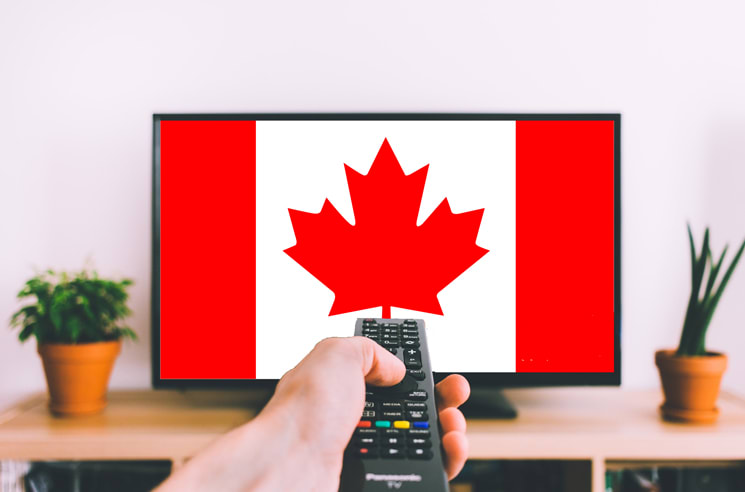An independent panel report on Canada's broadcasting and telecommunications legislation recommends requiring foreign streaming services to "devote a portion of their program budgets to Canadian programs."
The report — released today after being commissioned by the federal government — gathered submissions from over 2,000 stakeholders, public and private broadcasters, and tech companies in an effort to suggest updates to the country's broadcasting and telecom sectors.
In the report, the seven-member panel expressed that they are "not recommending that Canadian content be supported by the so-called Netflix Tax," but rather forcing streaming services to "invest in Canadian programming that they believe will attract and appeal to Canadians."
The panel believes that this goal would support new policy surrounding Canadian culture without leading subscription prices to rise.
"It's not necessarily the case that this is going to increase their program budgets. What we're saying is that a portion of those program budgets, which are significant, must qualify as Canadian," panel leader and industry vet Janet Yale told CBC News. "We do not think that this is something that would be passed on to consumers or result in higher prices."
At present, popular streaming services such as Netflix and Amazon Prime are not obliged to meet the programming quotas required for Canadian broadcasters. The services also do not pay into the Canadian Media Fund, which finances and supports creation of Canadian content.
In a submission to the panel, Netflix argued that due to being a foreign company, it could not draw on the fund to produce Canadian content. The company's submission read, in part, that the panel "should consider carefully the merits and implications, from a public policy perspective, of drawing foreign, global, online services into what was designed to be a domestic closed-circle of support."
"We look forward to working with the government as it proceeds to modernize Canada's broadcasting and telecommunications laws," a Netflix spokesperson told CBC News. "The local industry is flourishing; we will continue investing in made-in-Canada productions and stories, bringing them to the world."
In the past year, Netflix confirmed plans to open a production hub in Toronto, and partnered with three different Indigenous organizations to foster and develop new talent.
The independent report also recommends making the CBC a publicly funded, ad-free service, strengthening and reimagining the role of the Canadian Radio-television and Telecommunications Commission (CRTC) and combining the Canadian Media Fund and Telefilm Canada into a new, publicly funded entity.
You can read the complete report here.
The report — released today after being commissioned by the federal government — gathered submissions from over 2,000 stakeholders, public and private broadcasters, and tech companies in an effort to suggest updates to the country's broadcasting and telecom sectors.
In the report, the seven-member panel expressed that they are "not recommending that Canadian content be supported by the so-called Netflix Tax," but rather forcing streaming services to "invest in Canadian programming that they believe will attract and appeal to Canadians."
The panel believes that this goal would support new policy surrounding Canadian culture without leading subscription prices to rise.
"It's not necessarily the case that this is going to increase their program budgets. What we're saying is that a portion of those program budgets, which are significant, must qualify as Canadian," panel leader and industry vet Janet Yale told CBC News. "We do not think that this is something that would be passed on to consumers or result in higher prices."
At present, popular streaming services such as Netflix and Amazon Prime are not obliged to meet the programming quotas required for Canadian broadcasters. The services also do not pay into the Canadian Media Fund, which finances and supports creation of Canadian content.
In a submission to the panel, Netflix argued that due to being a foreign company, it could not draw on the fund to produce Canadian content. The company's submission read, in part, that the panel "should consider carefully the merits and implications, from a public policy perspective, of drawing foreign, global, online services into what was designed to be a domestic closed-circle of support."
"We look forward to working with the government as it proceeds to modernize Canada's broadcasting and telecommunications laws," a Netflix spokesperson told CBC News. "The local industry is flourishing; we will continue investing in made-in-Canada productions and stories, bringing them to the world."
In the past year, Netflix confirmed plans to open a production hub in Toronto, and partnered with three different Indigenous organizations to foster and develop new talent.
The independent report also recommends making the CBC a publicly funded, ad-free service, strengthening and reimagining the role of the Canadian Radio-television and Telecommunications Commission (CRTC) and combining the Canadian Media Fund and Telefilm Canada into a new, publicly funded entity.
You can read the complete report here.




